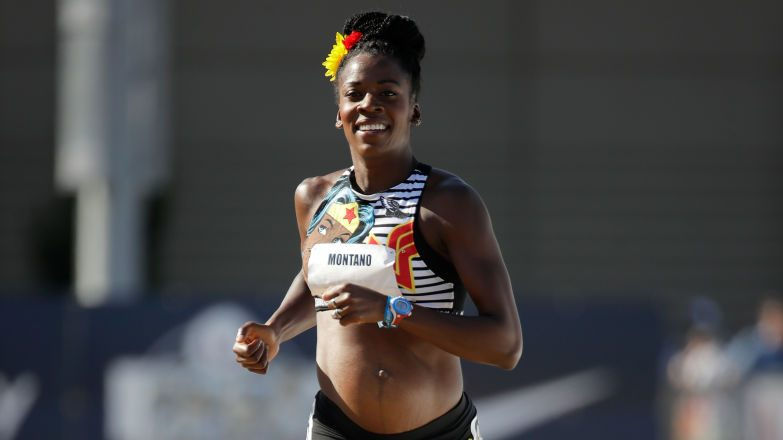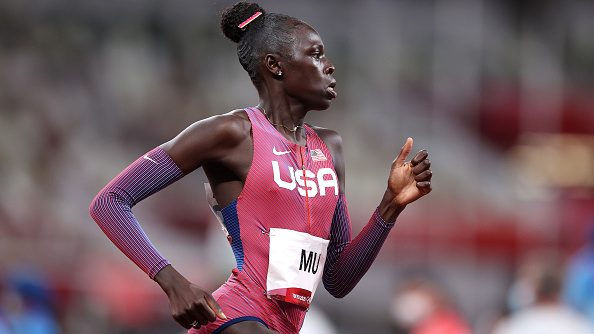Women Ball Too
- Lacey Yahnke

- Mar 11, 2019
- 6 min read
I started playing baseball at a very young age, 5 years old to be exact. My parents were just as guilty as many other parents across America who stick their little ones in T-Ball just to watch them tumble around the bases, craft “snow angels” in the dirt at second base, pick their noses in right field. When kids are this age, there are no differences in abilities between boys and girls. Boys and girls both struggled to hit the ball off the tee and field grounders in the infield. Boys and girls both cried when a play didn’t go their way and cheered when they realized the snack bar would be open when the game was finally over. When kids grow older and move up to different age groups, the sport of softball calls and all the girls in the league typically answer. The two sports are different, mostly because one is for boys and one is for girls. However, I didn’t really see it that way. I didn’t see a need to switch to softball because I was already playing baseball, a sport that I really began to love. Ignorant to the fact that there was even a segregation of genders in a game so simple as this. So, I never switched, and played with the boys until I was 16.
“Everyone line up, hustle, hustle.” I quickly tried to gulp down water and a few bites of a Snickers Bar before leaping onto the field. “Come on now everyone line up, in order,” said the coach with the clipboard.
29 boys and 1 girl dancing in the dirt outside the dugout, anxiously awaiting a try out. I stood confidently as I threaded my long blonde ponytail through the hole in my cap. The smell of fresh grass and brand new cleats filled the air, and the sun shone brightly in the sky. The coach stood in front of us, the khaki shorts and white Reeboks completing his look. We all fidget and struggle to stand still.
“Okay, before we start we need to make sure you’re all protecting yourselves out there on the field today so no one gets hurt. So I need all of ya to knock on the door for me.”
One by one each boy raises his fist and taps on his cup beneath his baseball pants. Each boy knew exactly what this “knock on the door” phrase meant. Unaware of what a “cup” even was, I proceeded to raise my fist high and knock at the invisible door in front of me, looking around in utter confusion.
“If you’re not protected you cannot try out today.” Protection from what? How could something as small as a “cup” do such anything, let alone "protect"?
This was the first time I began to recognize fundamental differences between boys and girls, but I didn’t see what playing a sport had to do with those differences. Even though I was the only girl in the league, I still made every team, showed up to every practice, hustled through every play. The All-Star roster at the end of every season included my name starting when I was 10 years old. Sure I was smaller in size and had longer hair, but I stood my ground on the field, blissfully unaware that the social norms of gender discrimination were beginning to creep into my young life.
Gender equality (especially in education and sports) is a highly controversial issue. Even the father of the modern Olympic Games, Pierre de Coubertin, stated at the end of the 19th century, “Regardless of how toughened a female sportsperson might be, the organism of a woman is not shaped to sustain specific shocks.” And to this day women continue to grapple with the fact that gender defines oneself in our society, no matter how hard you can pitch a fastball.
The differences between men and women in sports are seen in how they are treated on and off the field, in the media, even in how they are paid. In America, 40% of all athletes are women, yet only 6-8% of all sports media coverage is devoted to them. The Women’s World Cup soccer final last July was the most watched soccer match in the United States regardless of gender with nearly 25 million viewers. Yet the women were paid far less than the men’s team would have been. Coaches in women’s teams sports at the collegiate level earn 63 cents for every dollar earned by the coaches of male teams.
When I was 13 years old, I became involved with a program called Dream Team USA, an all girls travel baseball team. I’ll never forget the feeling I had when I met other girls like me, full of drive and passion to succeed “just like the boys.” We traveled all over the country to represent USA Women’s Baseball. Most fans were supportive and loved that girls played baseball. Little girls would ask for photos and excited moms would squeal with inspiration and say phrases like, “Go get ‘em girls!”
On the other hand, some were rather offended that we even stepped foot in a dugout. At times we would walk into the gates of a stadium, where fans (mostly men) held signs that read, “Go back to softball!” and “You don’t belong here.” Some fans vocalized their thoughts as if that would scare us off. Other times boys on the opposing teams would utter negative comments under their breath, ashamed to be even playing on the same field as girls.
Perhaps they were insecure of their own talent and felt the need to stomp on our self-esteem in return. Perhaps they were raised to believe that their skill triumphed over ours, and the simple fact that they were boys meant superiority. Perhaps the fear of striking out to a girl was too great to keep inside. And again, in those moments, I chipped away at the question of why inequality lurks in our society, even in the small bubble of youth baseball. We had the same skill, speed, and strength as the boys, and yet we were still seen as unequal. I couldn’t figure out why, or how to stop this madness at my young, innocent age.
In 2014, we traveled to Osaka, Japan for the 2014 Women’s World Cup. Many people do not know that women’s baseball exists in the U.S., let alone internationally. There were 20 of us on the team, ranging from 16 to 25 years old. The Japanese women’s skills were tremendous, so to play on their turf against them was a privilege.
They hit, pitched, and fielded just as good as the men’s teams I had played against, if not better. They celebrated their accomplishments in this sport and were a sight to see, defying norms in our culture that reinforce “women just not being as good as men.” A pure force to be reckoned with. Here there were no limitations on gender, no negative comments from the stands. Only positivity, only harmony. This experience gave me hope that my world could exist like this someday.
Now that I am older and have gained some perspective on how our little world behaves the way it does, I think I have began to see that gender equality should not be seen as solely a women’s issue. It should become everyone’s issue, humanity’s issue. In the same sense that people claim, “women make up half the population, and therefore half its potential,” men represent that other half, meaning their potential to decrease this issue in our society is equivalent to ours. How can we fight back against this issue if only half act to end it? How can we win a game if only half of the team shows up to play?
Baseball was, and continues to be, a huge part of my life. Now it lives on the screen of my TV and in the app on my phone, the voices of ESPN announcers reminding me of my simple yet complex past and creating magical moments of diving plays and grand slam home runs in my present. I now live vicariously through the best players in the MLB.
A passion for sport, for success, for beating to the sound of my own drum was instilled in me from such a simple game of throwing and hitting a tiny white ball across a diamond shaped field. While the adversity that exists for female sportsperson’s continues to saturate society, it gets better with every girl who believes in her ability to succeed regardless of her DNA. It gets better with every woman who stands tall among men who think they stand taller simply because of their gender. It gets better with each and every one of us, who empower each other to rise above the “man vs. woman” culture.
It will get better when society can say, “Let’s all play ball.”









Commentaires